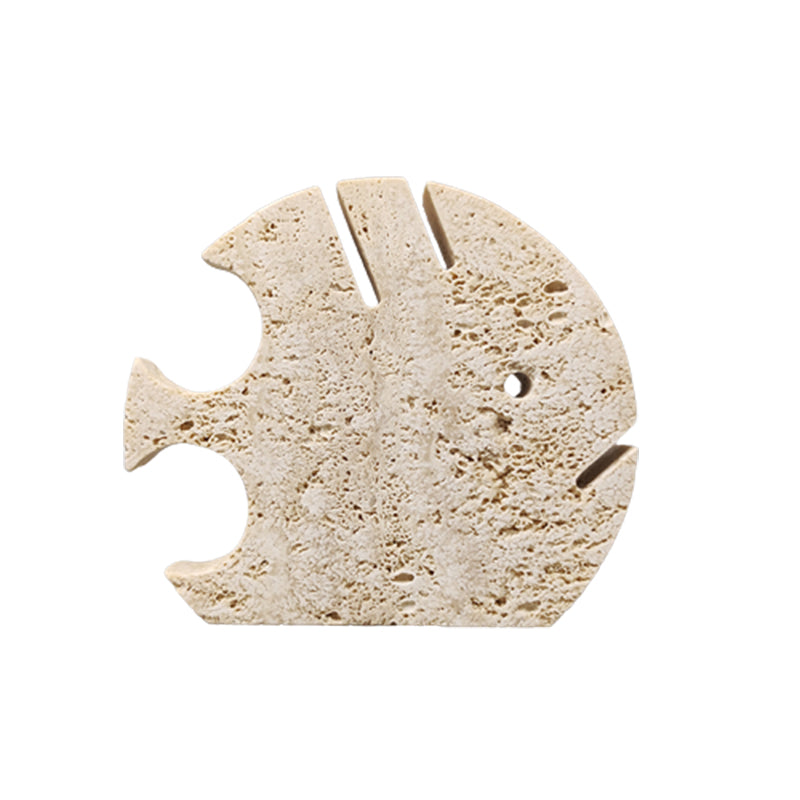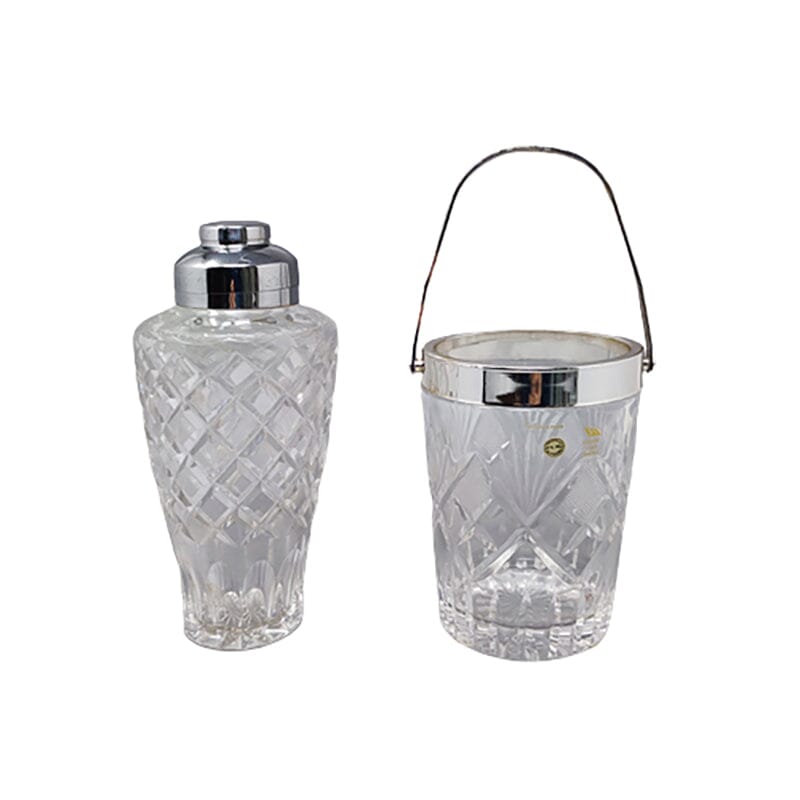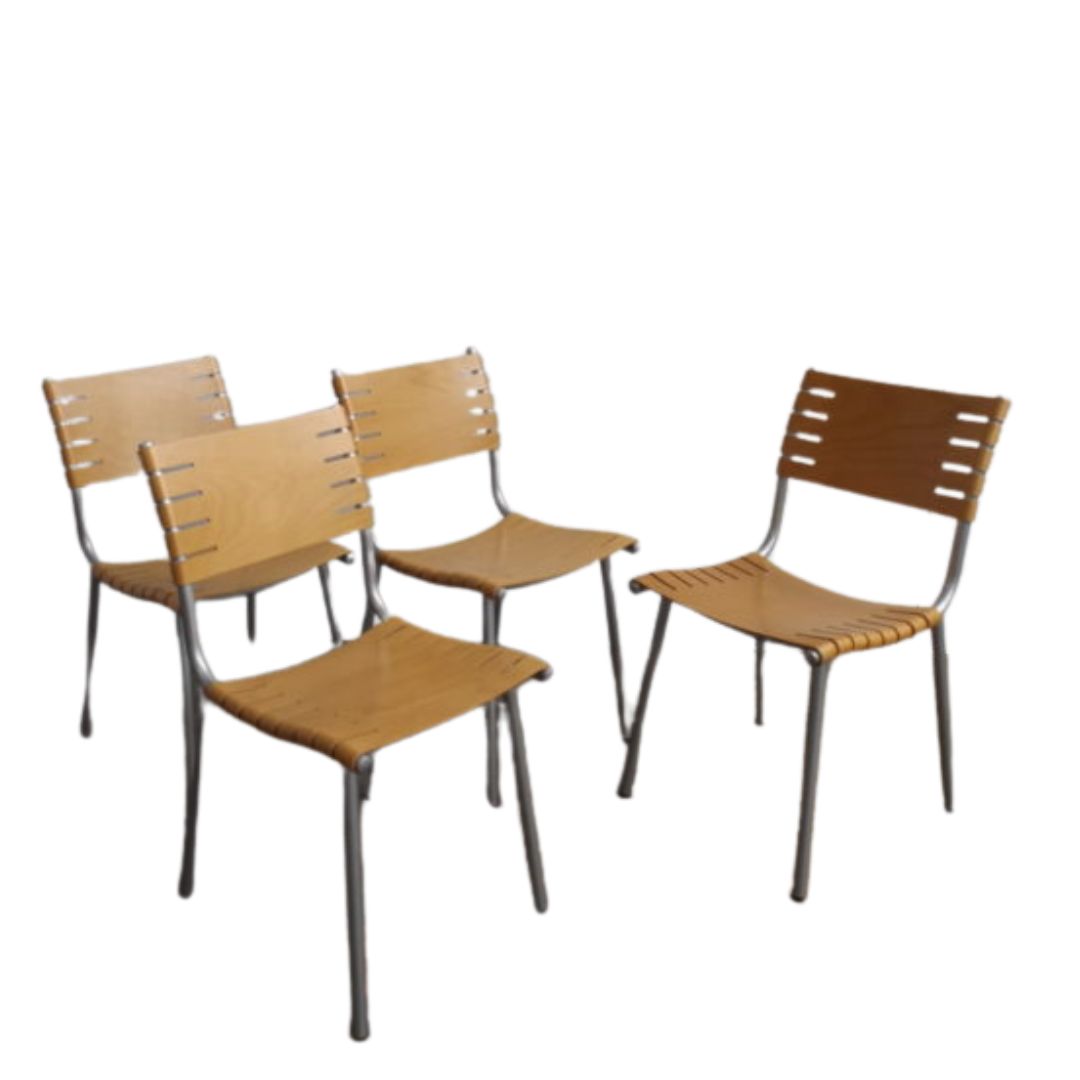I enjoyed your lawn-mowing story, BTM
but the moral of the tale isn't really applicable to the supposed "ethical dilemma" of breaking up a set.
The third landscaper showed benevolence toward the neighborhood through his uncompensated act, he was rewarded with additional business as a result. Perhaps the landscaper did it without motive because he just hates unsightly grass... perhaps he did it because he foresaw the result.
In the case of a seller who nobly (?) refuses to break up a set of chairs-- who's the recipient of this "benevolent" act?
If there is indeed a market for "onesie" dining chairs, it's proof that people want or need them. Is that not "good business"-- fulfilling a need? Would the world be a better place if vintage dining chairs could only be purchased in increments of four, or whatever arbitrary number comprises a "set"?
Part benevolence, part sales tactic
The rule of thumb for older antiques, 19th century and older, is to keep a matching group of chairs together and the reason is both monetary and being a responsible steward of your trade.
First, the money. It's been my experience that I can sell a group of chairs for the same or more than the sum of the sale of the individual chairs. The more chairs there are, the higher the differential becomes between the sale price of the group and the sale price of sum of the individuals. Groups of four and six are still quite prevalent of 19th century chairs and the dealer probably won't realize any more money selling them together than by the piece. Groups of 8 and 10 are more rare and command a higher dollar just because they are a matching set so the differtial goes up. The ultimate coupe is to pick up a set of 12 or higher and now we're talking 1stdibs prices.
Secondly, and to me, more importantly, is what I feel to be an obligation as a person who respects and deals in antiques to keep pairs and groups of matching furniture together. They were made by the same craftsman in the same shop and have managed to survive as a group for over 100 years and I'm not going to be the one to separate them. I'm only talking about obvious matching pieces here, i.e. dining chairs, pairs of twin beds and nightstands, pairs of candleabras, sconces, bachelor's chests, etc.
I do separate big case pieces that go together but are for different purposes like a sideboard and a matching huntboard or armoire, because they are not exact pairs. I don't know why I feel differently about these pieces, but there you have it.
My original question was to ascertain if there is a different mindset between older antiques and MCM pieces. Someone above already pointed out that MCM items were factory made and made in greater numbers than older things which was a great point.
WHC, I wasn't responding directly to the set break-up issue
but rather the issue of purity, integrity and perhaps greater gain in the future where a poster stated as an "absolute rule of thumb", do whatever to make $$$'s.
Yes a person can do anything they want with their chairs, sell em one by one, break them up and part them out, but as Riki said, sometimes the integrity of a set can be more desirable and ultimately more valuable.
Personally, I once had been alerted to a set of two side tables for either side of the bed, they would have been perfect. Before I could get to the shop, the woman had sold one, needless to say I wasn't interested in a "set" of one, and apparently no one else was, as the single table languished in the shop for years afterward. These tables, I might add, were an obvious pair.
Of course a person can go for the "short money" sell two singles and then maybe hold the three for a long time. I like the solution up thread, sell a single and a set of 4
aesthetic compulsion
i appreciate the views and values in this thread. i also like the critical thinking in dealing with the inherent tension of a decision such as this.
riki, i admire the value represented in your point of being a "responsible steward" of your trade [or object of interest]. when one begins to speak in those types of terms within a culture that is so driven and dictated by the dollar [or euro, krone, rupee, etc.], the possible responses will often include those who look at you as though you claim to have been abducted by aliens.
thankfully, that's not been the norm here, though there is a strong case legitimately made for the strategy which will yield the most desirable [viz., biggest] financial profit. indeed, there's nothing "wrong" with realizing one's full economic potential.
nonetheless, i do agree with the notion that there are sound, time-honored reasons to live on a plane which is--dare i say--"higher" than what is represented by the haul of coin i'm able to enjoy with a given transaction. and despite what anyone might say to the contrary, i do believe an overwhelming majority of us live that way to an extent.
as an extreme example, let's say an individual chair can fetch 100 quid. to move in the opposite direction of a set, imagine we could get 75 quid for half a chair. perhaps some who were previously fine with separating the set are now not so keen on getting out the hack saw to realize a greater profit. why? because there's this notion of a greater good--something more important than money. imagine that.
in my understanding, it's not an ethical choice, nor a moral one, but rather an aesthetic and even spiritual compulsion which leads one to resist what appears to be personally rewarding in order to make room for a greater good--whatever that "good" happens to be. this, i believe, is the stuff of a civilized society--an ascent toward higher living, a pursuit of virtue, and in so doing a dethroning of self.
i'm reminded of g.k. chesterton who wrote [pardon the paraphrase], "a person has begun to understand the idea of eternity when he plants shade trees under which he knows full well he will never sit."
how appropriate.
Agreed Kdc
although in reference to your Chesterton quote and I'm absolutely being light here. My grandfather actually planted apple trees on his 80th birthday from seeds, with the intent of making pies. He did make pies from those trees as he lived another 22 years.
But yes, sometimes the higher ideal is what makes us more of a civilized society, appealing to our better angels if you will.
In my heart, I just can't believe that it should always be about the dollar, perhaps a bit naive but it has always stood me in good stead. I acted as such in my business career and was able to retire at 40, so I personally know it works.
big tv
great story of your grandfather; he was obviously an amazing man. too many at even a younger age run out of ambition and sink deeply into the easy chair. what a legacy.
this whole deal is not altogether different from the values we hold in our efforts to preserve our earth's resources and leave a better place for those who will carry on after we move on. we've had discussions here that reflect our willingness to make personal sacrifices for the betterment of our planet. granted, selling chairs and maintaining clean waterways are miles apart in their relative importance, but the manner in which we arrive at our decisions has striking similarities.
finally, i'm now envious of your retirement at such a young age. i've personally given up on a quest to retire by age forty since i'm just a short hike away from fifty. but then, i'm now working on my second million, mainly because my first million didn't work out! but to high-five your point, the getting is secondary to the manner of getting.
If you need any help, please contact us at – info@designaddict.com









